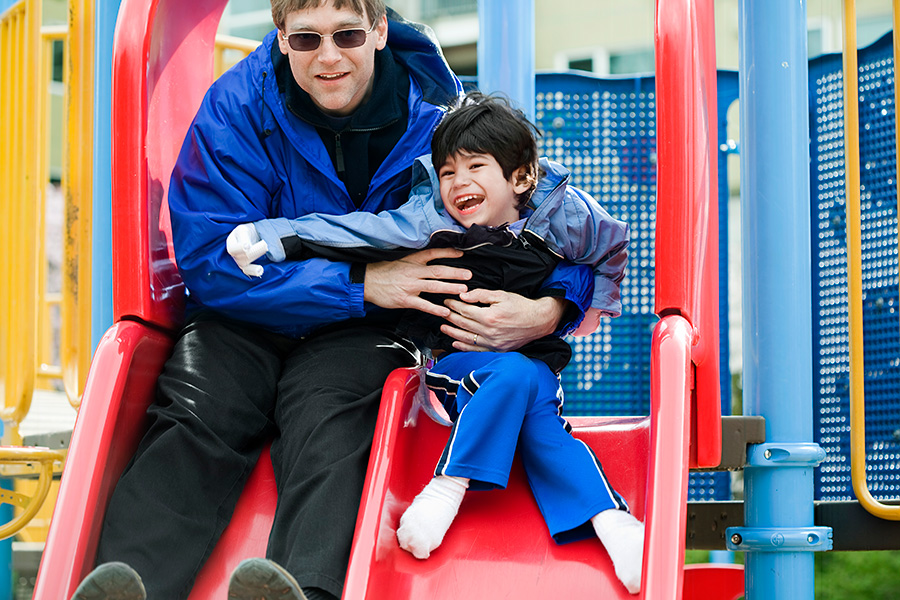Outpatient | Pediatric Therapy

Pediatric and Adult Services
Outpatient physical therapy services are offered for a variety of reasons, including to:- Assess and treat movement problems that make it hard for individuals to participate fully in life.
- Improve walking and/or other mobility skills, with or without technology, to enrich everyday activities.
- Interventions to improve motor learning.
- Set up a home, play or work space to improve motor function and increase independence with daily routines.
- Offer fitness, strength and endurance programs for children or young adults with intellectual and/or developmental disabilities or other complex medical needs.
- Evaluate and treat problems with adolescent and adult pelvic floor muscles. Pelvic floor physical therapy is for urinary or fecal incontinence (bladder or bowel leaks), pelvic pain or sexual health concerns.
Motor and Mobility Evaluations
Physical therapists work with clients to set goals, plan treatment and develop a home program to support skills, safety and fitness.
Our clinic locations include:- Munroe-Meyer Institute.
- Nebraska Medicine or Methodist Women’s Hospital NICUs.
- Post-discharge through the Tracking Infant Progress Statewide follow-up clinic.
School-Based Therapy
Physical therapists provide school-based therapy in the classroom to help children safely play and move about in their school setting.
Our partner schools include:
What to Expect
At the first physical therapy visit, expect to discuss these topics in detail about the patient (you or your child.)- Medical and movement history.
- Ability or limitations moving about at home and in the community.
- Equipment used or the ways space is modified to support motor function in areas where the majority of time is spent.
- Preferred activities and interests.
- In-depth look at gross motor skills like rolling, sitting, crawling, walking, jumping, etc.
- Detailed analysis of balance, strength, coordination, motor planning, fitness and flexibility -- the building blocks of all motor skills.
This information helps us set motor goals, plan physical therapy treatment specific to your individual needs and develop a program that can help you work independently at home to safely meet your goals.
Appointments
Please call MMI's Department of Physical Therapy to get more information or to schedule an appointment.
MMI Clinic Hours
- 8 a.m. to 4:30 p.m.
- Monday - Friday
Other scheduling options may be available.